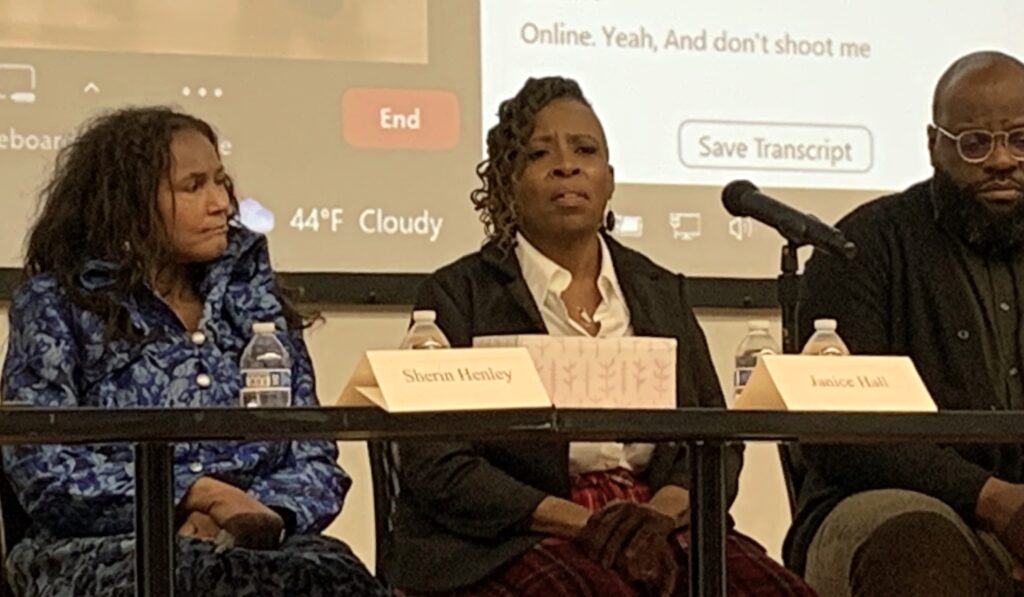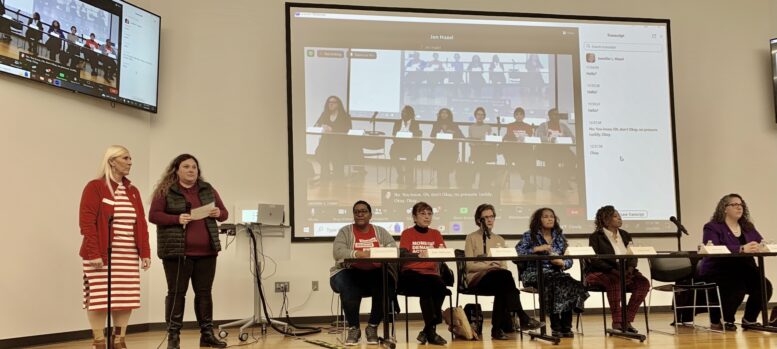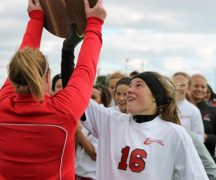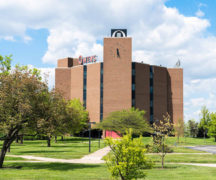By JULIE CARLE
BG Independent News
A senseless crime of opportunity put Wood County native Jonathan Krueger in the wrong place at the wrong time in 2015. The University of Kentucky student was murdered in Lexington, Kentucky, during a foiled robbery attempt.
Darrin Smith Jr. had the courage to stand up to a friend who was recklessly shooting a gun in his Toledo neighborhood. In an act of defiance, the friend shot and killed Smith in 2010.
Natasha Carlisle was one of two Toledo women found shot to death in a vehicle in the early morning hours of Nov. 7, 2021. Carlisle and her friend Laura Luckey were the victims of gun violence at the hands of Luckey’s former partner who is now in jail for the rest of his life with no chance of parole.
These victims are part of the gun violence statistics reported by Everytown for Gun Safety that states more than 120 Americans are killed by guns every day.
The local victims’ survivors–two mothers and a mother-in-law–shared their stories during a gun violence panel Wednesday as part of Owens Community College’s The Big Read.
Sherin Henley described her son Darrin Smith Jr., as a caring young man with a wonderful, kind spirit. He cared for the children in the neighborhood.
“Not only do I grieve for my loss, I grieve for his sister; they were like twins who protected and watched over each other. I grieve for my mom, who I later found out she heard the gunshots, never imagining it was her first grandson” who had been shot, Henley said.
The hurt was on the face of Owens Community College Admissions Representative Janice Hall as she talked about the most recent death of Carlisle, who was the partner of Hall’s son and mother of his daughter.

“It wasn’t the first time someone had gotten gunned down in my family,” Hall said. The son of a brother and sister-in-law had been killed in gun violence years before. Her sister was found dead in 2020. Yet, on Nov. 7, 2021, Hall awoke to a beautiful morning thinking of her sister because it was her birthday.
Her world was once again shattered when she got the phone call about Carlisle’s murder.
“I couldn’t move. It was surreal. If it’s not a family member, it’s someone you know,” she said.
“The only way I know to tell you my experience about gun violence is to tell you about Jonathan, the youngest of my four children,” said Jonathan’ Krueger’s mother, Mary. He was known for his smile, his love of family and Christmas, sports and basketball, and his work on the University of Kentucky newspaper as a photographer and photo editor.
He and his friend Aaron were walking home from a local bar when a van pulled up. Two young men emerged from the van with loaded guns and an intent to commit a crime as part of a gang initiation. Jonathan was shot four times. It took seven years for the men to be convicted and sentenced.
“The fabric of our family was ripped wide open in the early morning hours of April 17 (2015) as two policemen stood in our living room and told my husband and me that Jonathan was dead,” she said.
“Nine years later, the gaping hole, once filled by our vivacious son is still a gaping hole. My heart breaks again and again remembering Jonathan and all we have lost. But what is far worse is all that he has lost. His dreams, his plans, his future,” she said.
Saying the victims’ names, showing their photos and sharing their stories helps to explain they were more than statistics or just another number.
“These are all human beings. They all have families, loved ones and people that care,” said Krueger.. “I think if more people heard the stories and met the families it would have a greater impact and mean more than another statistic or headline that you don’t know what to do with.”
The Owens event was about bringing the stories of the victims and survivors to the forefront and brainstorming ideas to combat gun violence.
In addition to telling the stories so they are more than just a statistic Hall said the solution starts with loving one another first “and all that love has to start in the home,” she said. “We are here today to support each other and try to brainstorm.”
Judy Harbaugh is a member of Toledo Moms Demand Action, one of 11 chapters in Ohio. “We are not just mothers, we are mothers and others—a strong community of neighbors, survivors and even gun owners,” she said.
The organization is not anti-gun, but anti-gun violence. “Most gun owners are responsible gun owners and that’s what we are for. We want an end to gun violence,” she said.
Moms Demand Action talks about gun-sense laws and candidates that make neighborhoods and people safer. Their core purpose is to reduce gun violence in all its forms: suicide, domestic violence, homicide and unintentional shootings of children.
Because leaders of the country are making decisions that impact underserved communities, Harbaugh said it’s important for everyone to learn about the candidates running for political offices at all levels.
If everyone voted and got people in office who are listening to the stories and paying attention to gun violence in the country, real progress could be made, she said.
“We have to hold candidates accountable when they are elected, to make the change they promise,” said panel moderator Erin Kramer, who is director of admissions at Owens and a member of Moms Demand Action. “Most people want common sense gun legislation; they don’t want family members to be gunned down.”
According to Everytown statistics, Ohio is ranked 33rd in the nation for its gun safety laws. “Take the top eight states (in gun safety) and average those deaths (for every 100,000 people), if we (Ohio) had that average, 13,555 people would not have been killed,” Harbaugh said.
“Each of these deaths leaves survivors. The stories of survivors are the heart of Moms Demand Action. So many of us have not had the experience that many here today have had, but it’s the heart of what keeps us going,” she said.
Sheena Barnes, a liaison for Students Demand Action, a business owner and a Toledo Public School board member, had her own story to tell. She grew up in Flint, Michigan, during a time when it was ranked number one for homicides in cities with populations under 100,000. Not until she was an adult did she realize the trauma she suffered from growing up in a gun-violent environment.
“I lost friends and family members to gun violence to the point where it became normalized in my life,” Barnes said. “I didn’t understand that gun violence wasn’t a normal thing for people.”
She has since had access to therapy to understand the impact of post-traumatic stress disorder. Now, as the local Students Demand Action liaison, she advocates for area youth who may be exposed to gun violence on a daily or weekly basis.
“This is what our kids are facing. The common conversation we have is that we blame the victim when we are talking about youth and gun violence vs. understanding they are just surviving using the tools that they have,” she said.
Their behaviors, such as anger and acting out in the classroom can often be attributed to PTSD. Their experiences also contribute to higher average childhood affective disorders, which increase health risks, heart attacks and strokes.
One of the most important actions to take to help students is to listen and hear them, Barnes said.
“When I’m talking to students about gun violence, they are afraid just like we are but they have to walk by the houses, live in those complexes, navigate going to school when somebody just nearly got taken in front of your house. We have to start listening to them,” she urged.
For Rebecca Facey, chief prosecutor for the City of Toledo, “Access to guns is the number one issue at this point. If they did not have a gun in their hand, in their closet, in their nightstand to even consider pulling out in a tense situation at home, then so much of the crime in Toledo simply would not occur.”
Hall’s solution is to love one another and become involved.
The event was sponsored by the college’s Big Read, which this year featured Toni Jensen’s ”Carry: A Memoir of Survival on Stolen Land.” Jensen will speak and present student workshops at Owens on April 25.





